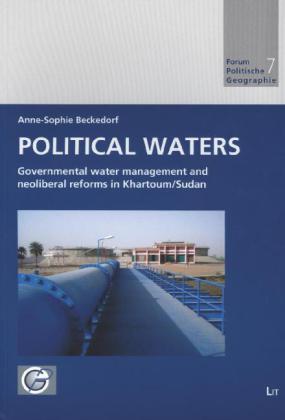
Zustellung: Mo, 11.08. - Do, 14.08.
Versand in 3 Wochen
VersandkostenfreiBestellen & in Filiale abholen:
This book examines how recent reforms of decentralization, privatization and commercialization are initiated and implemented with regard to water management in Khartoum. In so doing, it uses the prism of water to gain insights into Sudanese (water) politics, power strategies and state-society relationships. Drawing on detailed, actor-oriented and ethnographic analyses based on political ecology and on organization sociology, the main findings develop important aspects of rule and emphasize the relevance of studying local, micropolitical contexts in order to understand macropolitical dynamics.
Mehr aus dieser Reihe
Produktdetails
Sprache
englisch
Seitenanzahl
312
Reihe
Forum Politische Geographie, 7
Autor/Autorin
Anne-Sophie Beckedorf
Verlag/Hersteller
Produktart
kartoniert
Gewicht
556 g
Größe (L/B/H)
226/153/19 mm
ISBN
9783643902160
Bewertungen
0 Bewertungen
Es wurden noch keine Bewertungen abgegeben. Schreiben Sie die erste Bewertung zu "Political waters" und helfen Sie damit anderen bei der Kaufentscheidung.













